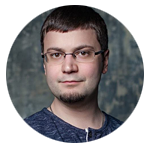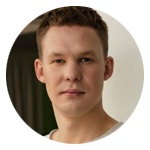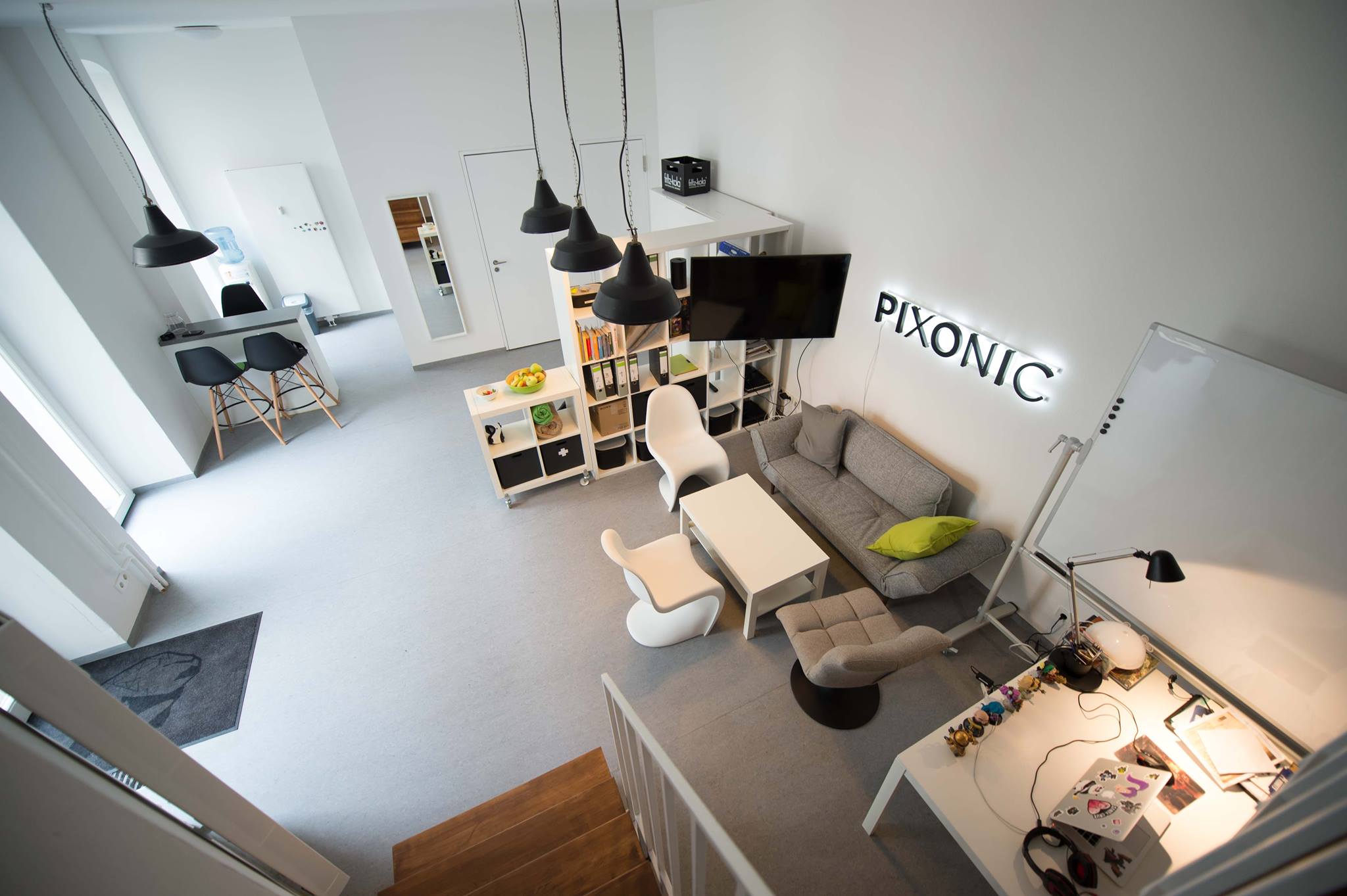At the end of May, Russian Pixonic announced that its blockbuster War Robots had been downloaded more than 50 million times. In connection with this event App2Top.ru I talked to the directors of the company about the most important events in its history.
The questions were answered by CEO Philip Gladkov and COO Igor Klyukin.
Alexander Semenov, Senior Editor App2Top.ru : Over the past year, the company’s revenue has grown fivefold. Downloads jumped from 15 million to 50 million. What has become the main driver of growth?

Igor Klyukin
Igor Klyukin, COO at Pixonic: As always — the work of the team. By this point, the product was prepared and marketing became the driver at this moment. We have just opened an office in Berlin to adopt foreign expertise and optimize solutions for our processes. They adopted something, did something in their own way and as a result were able to achieve impressive marketing indicators.
At the same time, the game was not profitable for the first year of its existence. What was in the way in the first place?
Igor: Project indicators, the quality of the game from the point of view of “craft” — tutorial, bugs, non-working GD solutions, monetization, economics, and much more. In the first year, we were just finalizing the project and metrics to the minimum necessary.
How and when did the turning point happen when you realized that, that’s it, the game has gone?
Igor: It is not quite right to talk about a turning point. We believed in the game at every stage, starting with the idea and prototype. There were concerns at every stage and we worked hard to identify risks and prevent critical errors. At each stage there were moments when we realized that everything was done correctly. One of the most emotional moments was the soft launch of the project, when the game in the CIS countries itself soared to the top in horse racing, which exceeded our expectations.
Then the euphoria passed and we realized that the metrics still needed to be pulled out and the next emotional moment occurred when, after a difficult release, we saw that our edits worked and the trend in indicators went up.

Philip Gladkov
Philip Gladkov, CEO at Pixonic: The same can be said about marketing — we found working channels, we successfully mastered new geo, made accurate predictions and scaled rapidly.
So there is no one moment, it’s not a sprint, it’s a marathon.
When you came to mobile, there was no World of Tanks Blitz on it yet. Isn’t your success partly due to the fact that you successfully occupied the niche of Wargaming on mobile?
Philip: Yes, we occupied a niche, but WoT Blitz came out 2.5 weeks after our softlatch.. Even at the stage of choosing the project concept, we expected that there would be tanks before or after us. And this is one of several reasons why we chose the robot setting.
What metrics did you have when Pollen agreed to give you money for advertising?
Philip: It wasn’t about metrics here — at that time they were more than modest. The most important thing is that we have shown that we are doing business — we invest money in advertising and earn. We also had positive dynamics during the previous six months.
A year ago, you said that you spend about 60% of your revenue on marketing. Has the figure changed?
Philip: Our goal is to capture the maximum market share, to show our game to the maximum number of players. Marketing had the task of “frying to the full”, and it is worth it. Also, we are constantly improving the game and LTV is growing. The more LTV, the more we can afford to invest in advertising. Therefore, we are still reinvesting 60% of our revenue in advertising.
At the end of last year I bought you Mail.Ru Group. Did I buy from you as the owners or from Elena Maslova, one of the founders?
Philip: The situation was interesting, perhaps not quite standard. Pixonic did not have one owner, but there were two founders, over time a large group of shareholders was formed, some of whom are far from business in the gaming industry, there was a board of directors made up of shareholders or their representatives.
The purchase was made from all shareholders. We acted as management and minority shareholders, but without the obligations of the founders — this moment was somewhat non-standard, which somewhat “tore” the usual pattern of such transactions and on which it was especially interesting to work.
If you were the owners, would you sell the company?
Igor: A question from the category of “if …” If we were the owners, the company would work somewhat differently, the story would be different (not the fact that for the better). And in one of the hypothetical universes, there would still be a deal, but most likely not 100% of the company.
What has changed in the company since the arrival Mail.Ru ?
Philip: At all levels, we tried to maintain autonomy and we succeeded. There is no influence on the company’s work processes.

But at some levels you are with Mail.Ru do you interact how and when it happens?
Philip: All within the framework of building a standard relationship with investors, the same boards of directors and so on.
In the winter of 2016, you announced that you are ready to return to the publishing house. But we haven’t heard any new announcements from you. What happened, where are the projects?
Igor: Listen, I think it’s noticeable that we prefer to work and not just do announcements. According to the publication, we are not going to take this direction with a large number of projects, but we are looking for high-quality hardcore and midcore, since we have the main expertise in this direction. It is also important to have a team with whom we can work long-term and as partners. There should be a win-win on both sides.
Philip: Yes, the work is in full swing, we just don’t shout about it much. We are considering applications, we communicate closely with several teams. To date, we have already taken the project to the publisher, but it did not pass the test period. Now we have a second project in the works, we will be able to tell you more about the results after the softlonch.
What should the project be like for you to take it? What metrics, genre, what team?
Philip: The main criteria are the quality of the product. And we are also looking at the retention of the 14th day – it should be about 25%.

Companies rarely decide to change their name after two years on the market, you were not afraid and renamed in 2016. The bulky Walking War Robots has gone down in history. Has it become easier to promote the game?
Igor: This is another story. I will try briefly. At the beginning of 2016, we sponsored an esports broadcast — a Robot logo hung in the corner of the screen, which turned out to be unreadable in this format. This was the catalyst for the logo change. In the summer, while searching for a logo idea (I told it separately on facebook/app2top), our director of community told Philip and me, “let’s also shorten the name to two words.” By that time, we had repeatedly noted that few people correctly understood or read the name of the game by ear from the first time — partners, players, streamers, friends, to whom you tell about the project you are working on.
At first I had the standard reaction “Yes, of course it sounds reasonable, but it’s too late – the game is two years old, no one does that.” But this is not the reason at Pixonic, and they “beat” us for this approach, and after a mental slap to myself, I told the team that was developing the logo that the paradigm had changed.
As for the result, I believe that the step is correct, although it is difficult to distinguish the impact of this particular step among the measured metrics, but there is no such goal. There is growth, there is a solution that has removed the empirically known problem “people ask the name of the game several times” and there is another case that the phrase “no one does that” is not the reason in itself and we need to dig further. Often, no facts are found behind this phrase.
I see, thanks for the interview.
